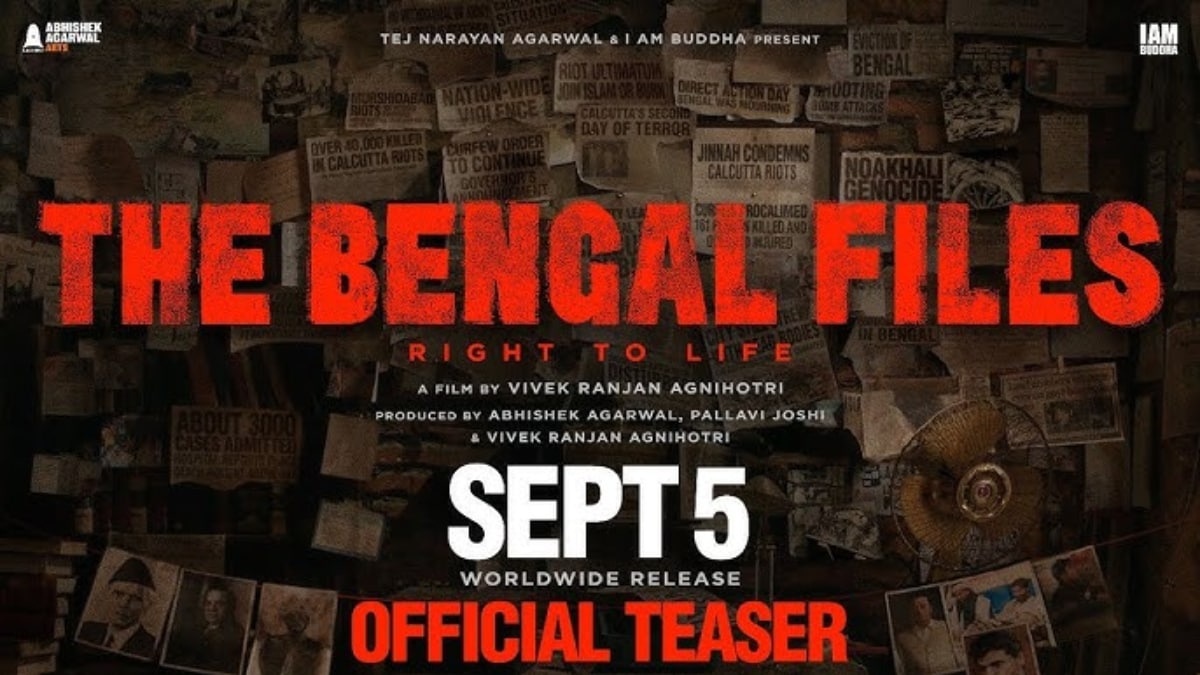

Vivek Agnihotri has released the teaser for his upcoming film, 'The Bengal Files', generating considerable buzz and anticipation. The film, slated to release on September 5, 2025, is described as the concluding chapter in his "Files" trilogy, following 'The Tashkent Files' and 'The Kashmir Files'. The teaser offers a chilling glimpse into the communal violence of 1940s undivided Bengal, specifically focusing on events like Direct Action Day and the Noakhali riots.
The teaser opens with a powerful and ominous voiceover by Darshan Kumaar, who declares, "Main ek Kashmiri Pandit hu, isliye yakin se keh sakta hu, Bengal dusra Kashmir banta jaa raha hai" (I am a Kashmiri Pandit, and therefore, I can say with full confidence that Bengal is turning into another Kashmir). This statement immediately sets a tone of urgency and foreboding, hinting at the film's exploration of communal tensions and their repercussions. The visuals accompanying the voiceover are intense, filled with glimpses of riots, burning streets, and helpless victims, painting a stark picture of the period.
Agnihotri has stated that 'The Bengal Files' aims to give a voice to the voiceless and highlight what he refers to as the "Hindu genocide" during the partition era. The film carries the tagline, "If Kashmir hurt you, Bengal will haunt you," suggesting that it will evoke a similar emotional response as 'The Kashmir Files'. The director describes the film as "an experience in history" that interrogates India's identity amid cultural and political conflict, with a particular focus on Bengal's overlooked narratives. The film is said to explore the fundamental question: What is India?
The cast includes actors such as Mithun Chakraborty, Anupam Kher, Pallavi Joshi, and Darshan Kumaar. Anupam Kher is reportedly playing the role of Gandhi, while Mithun Chakraborty is said to be portraying a madman.
Originally titled 'The Delhi Files: Bengal Chapter,' the film was recently renamed 'The Bengal Files'. The film is reportedly based on the Great Calcutta Killings of 1946 and promises to open another haunting chapter of Indian history and politics.